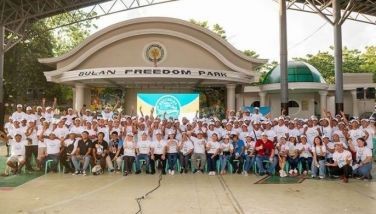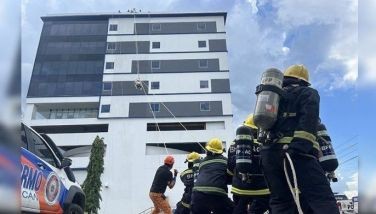EDITORIAL - First do your homework

In trying to fulfill his campaign promise of making America great again, US President Donald Trump has upended the rules-based global trade order, preferring to set his own rules and gloating that countries are “dying” to make a deal and “calling us up kissing my ass.”
Shortly after Trump’s order went into effect on April 9, with China being slapped the most punishing tariffs of 104 percent, he paused his order for three months. If Trump finally saw the chaos that he had created and its adverse impact on the US economy and his own businesses, he wasn’t saying it aloud. Instead he continued reveling in the global disruption that he was creating.
As the world grapples with the unreliability of America as a partner in anything, countries are nevertheless scrambling for survival in the uncharted territory that Trump has dragged the world into.
The reaction so far of the Philippine government has been largely sanguine, with officials citing a silver lining in Trump’s “Liberation Day” tariffs, under which Philippine exports to the US would be slapped a 17-percent tariff. Officials pointed out, among others, that the Philippine economy is not heavily reliant on exports and that there is an opportunity for the country to attract manufacturing amid the new US-dictated tariff regime.
This is in contrast to the reactions of Southeast Asian neighbors – from the country that was imposed the highest tariff, Vietnam, to the one with the lowest, Singapore – which began working out trade negotiations with the US long before “Liberation Day.”
Singapore Prime Minister Lawrence Wong addressed his compatriots in a video that has gone viral, explaining the potential disruptive consequences of “Liberation Day” on small states and urging Singaporeans to brace for impact, stressing the perils of complacency. Such attitude is what makes the city-state among the world’s most competitive and prosperous.
In the Philippines, agriculture producers have expressed concern over the impact of the trade wars on their livelihoods, but the Department of Agriculture has downplayed the concern. The Philippine Chamber of Commerce and Industry, the country’s largest business group, warned that the global “ripple effect” of Trump’s tariffs would be hardest on small businesses, particularly those in agriculture and food processing.
As for the hope of stimulating manufacturing activities, the country has been trying to do this for decades, but has progressively lagged behind its neighbors because of numerous factors that are still waiting to be addressed, from inadequate infrastructure to corruption and other roadblocks to ease of doing business.
If the Philippines wants to reap benefits from Trump’s new global trade order, it must first do its homework, and leave no room for complacency.
- Latest
- Trending




























